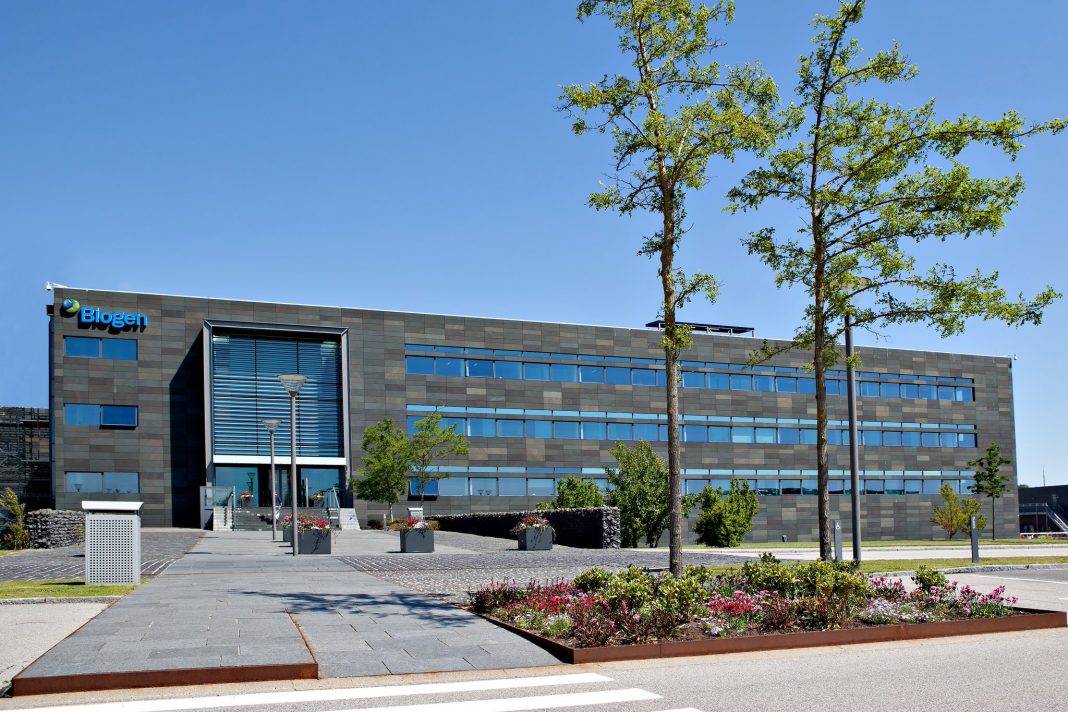Fujifilm has agreed to acquire Biogen’s large-scale biologics manufacturing site in Hillerød, Denmark, near Copenhagen for approximately $890 million cash, the companies said today, in a deal designed to strengthen the buyer’s ability to deliver large production volumes through “scale up.”
The $890 million purchase price is subject to the number of incoming orders of Biogen Hillerød, Fujifilm added. Biogen Hillerød will become Fujifilm’s fourth biopharmaceutical contract development and manufacturing site, and will be overseen by the buyer’s CDMO operation, Fujifilm Diosynth Biotechnologies.
Fujifilm Diosynth plans to retain the existing workforce of approximately 800 employees.
Biogen Hillerød contains 6 x 15,000 L bioreactors for the manufacture of cell culture-derived biologics, along with assembly, labeling, and packing capabilities, quality control laboratories, and warehouses.
Fujifilm said the acquisition reflects its strategy of supporting a range of projects from preclinical through commercialization phases, through facilities capable of delivering very small to very large production volumes. Through its partnership with Merck & Co.’s MSD site in Brinny, Cork, Ireland, Fujifilm Diosynth Biotechnologies provides access to large-scale production capacity (20,000 L) for microbial-derived biologics.
The Danish facility, Fujifilm said, will complement its current “scale out” manufacturing model implemented under its Saturn™ mAb services.
“We are pleased to contribute to the growing healthcare industry through this investment,” Shigetaka Komori, chairman and CEO of Fujifilm, said in a statement. “This significant investment demonstrates our continued commitment to grow the Bio CDMO Business and become an industry leader by combining resources of Biogen Hillerød and Fujifilm.”
Manufacturing services agreements
As part of the planned acquisition, Biogen said, it will enter into manufacturing services agreements with Fujifilm. Following the completion of the transaction, Fujifilm will use the Hillerød site to produce commercial products for Biogen, such as Tysabri® (natalizumab), as well as other third-party products.
Following the closing of the transaction, Biogen will operate manufacturing facilities in North Carolina’s Research Triangle Park (RTP) and Solothurn, Switzerland, which Biogen expects to be operational by the end of 2020.
“We continually evaluate our manufacturing strategy and we believe that this agreement serves the best interest of our employees, customers, partners, and shareholders,” Biogen CEO Michel Vounatsos stated. “As we continue to diversify our portfolio across multiple modalities and bring online our state-of-the-art manufacturing facility in Solothurn, Switzerland, we believe that we have enhanced our manufacturing capabilities and capacity for biologics with this transaction.”
The acquisition of Biogen Hillerød is Fujifilm’s latest expansion move for Fujifilm Diosynth. Fujifilm established a standalone biopharma CDMO operating unit in 2017, separating that business from its pharmaceutical products division, and announcing plans to expand capacity at its U.S.- and U.K.-based BioCDMO facilities by investing ¥14 billion ($125.8 million).
Fujifilm Diosynth said it intends to expand further. The company will extend the service of its fill/finish services in the fiscal year ending March 2021, to include cGMP aseptic filling of recombinant proteins for its full-service CDMO approach. Fujifilm Diosynth has also introduced next-generation mammalian expression system, Apollo™ X, designed to deliver titers in excess of 10 g/L, and has expertise in the development and manufacture of a variety of biologics including recombinant proteins, monoclonal antibodies, viral vaccines, and gene therapies.
Last year, Fujifilm acquired Irvine Scientific (ISUS) and IS Japan (ISJ)—a pair of cell culture media businesses owned by Japan-based JXTG Holdings—for a combined $800 million, and incorporated the businesses into Fujifilm Diosynth.
The acquisition of Biogen Hillerød is expected to be completed around August 2019, Fujifilm said, subject to customary closing conditions that include clearances under the Hart-Scott-Rodino Antitrust Improvements Act of 1976, as amended, in the U.S., the Danish Competition Act, and the Korean Monopoly Regulation and Fair Trade Act.
“Fujifilm is a well-respected leader in manufacturing biologics products, and they share our pioneering culture. We are pleased to reach this agreement with them,” Vounatsos added.


